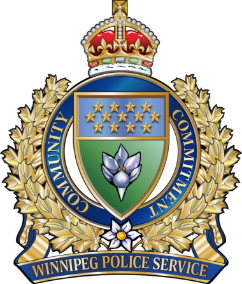The Winnipeg Police Service can help individuals at risk of being involved in gang activity. We can connect at-risk individuals with necessary supports where possible through government and community agencies.
Are you, or do you know an at-risk individual? Do you need help?
Reach out or send a referral to the Winnipeg Police Service Gang Prevention Coordinator
There are three ways to get help:
- Submit a referral form (PDF, 475KB)
- Call the Winnipeg Police Service Gang Hotline: 204-986-GANG(4264)
- Email the coordinator at WPS-gangprevention@winnipeg.ca
- A group of three or more persons who commit crimes for material benefit and/or financial benefit.
- They may identify themselves through a common name, symbol, color, sign, graffiti or clothing.
- Active / Admitted gang members
- Siblings of active gang members
- Associates with gang members
- Sexually exploited females
- Associates with other wannabee gang members
- Possible / Known gang intentions of recruitment
- Easily influenced individual
- Drug dealers
- Escalating criminal behavior
- First time young offenders
- Limited family and positive supports
- Becomes withdrawn from regular activities
- Engages in vandalism or delinquent behavior
- Has a sibling who is already a known gang member
- Limited family support and may be relied on to support themselves
- Limited positive supports
Possible signs of a person at-risk for gang enrollment
- Owns more than one cell phone
- Isolated from friends and family
- Shows signs of tobacco, alcohol or drug use
- Changes circle of friends and desire too much privacy
- Carries a weapon or conceals personal items
- Makes impulsive and/or excessive purchases (clothes, jewelry, car, etc.)
- Has large sums of money from an unexplained source
- Uses a gang's specific colors, emblems or hand signals
- Has had negative interactions with police
- School
- Parks
- Parties
- Recreation centers
- Through friends
- In your own back yard
- Online
- The majority of gang members are male.
- Almost half of gang members are under age 18.
- Gang members are from all races, cultures, social economic groups.
- The goal of a gang is to participate in illegal activities using violence and intimidation.
- Females in gangs are regularly utilized in the sex trade and/or exploited.
- Spending quality time with their children and getting involved in their education.
- Knowing their children's friends and their families.
- Teaching their children how to cope with peer pressure.
- Helping children develop good conflict/resolution skills.
- Encouraging children to participate in positive after school activities with adult supervision (e.g. organized sports, youth groups).
- Challenging their children's whereabouts.
Parents, teachers, school counsellors, youth workers, elders and other community members play a vital role in helping children and youth to avoid gang involvement. Services are available for you to call upon.
- A searchable online database of government, health, and social services that are available across Manitoba.
- The service helps Manitobans who are looking to find the right community or social resource but don’t know where to start.
- Services are grouped together into categories that include food and clothing, housing and homelessness, health, mental health, employment, newcomers, children and parenting, and youth.
- Manitoba 211 offers a comprehensive database for youth services.
Manitoba Justice Project Gang Proof Resource Line
- 1-800-691-4264 a non-emergency resource line for youth, parents and others dealing with gang-related issues.
- Callers will be referred to the appropriate resources.
Turnabout Program
- Winnipeg (204) 945-5609 / Manitoba 1-866-276-5081
- Assists children under 12 who have come into conflict with the law.
- The program is a partnership between provincial agencies, community groups and local police services.
